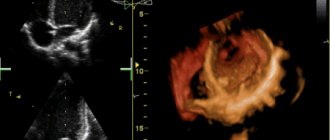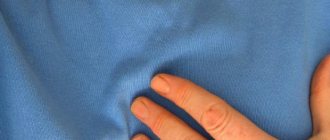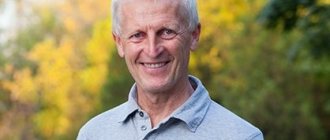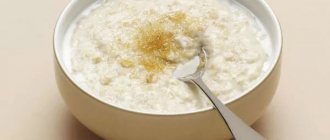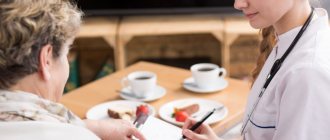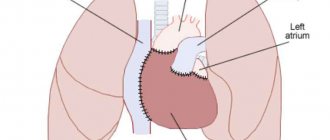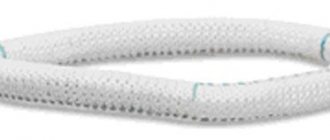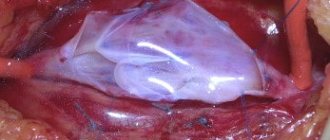Drug therapy after valve replacement
Patients undergoing surgery must take medications prescribed by their cardiologist.
- When installing donor valves, the patient will have to take immunosuppressive medications after surgery and for life. This reduces the risk of foreign tissue rejection.
- If a patient has symptoms of cardiovascular disease after valve replacement (for example, he has angina, arterial hypertension, etc.), he should take appropriate medications regularly and on an ongoing basis. The composition of therapy and dosage of medications are determined by the doctor. If at some point the recommended treatment regimen no longer “works” as before, you should definitely consult a doctor for examination and treatment correction.
- If a patient needs valve replacement due to rheumatic heart disease, they may need to take periodic antibiotics after surgery to prevent rheumatic heart attacks.
- All patients with mechanical and biological valves are prescribed anticoagulant therapy. A foreign body is actually introduced into the heart, to which the blood system reacts with increased coagulation. As a result, blood clots can form on the valve, which complicate its operation, can break off and enter the bloodstream, resulting in dangerous and even life-threatening complications - stroke, vascular thrombosis, pulmonary embolism.
Anticoagulants prevent the formation of blood clots, and therefore their use is mandatory. The most commonly used indirect anticoagulant is warfarin. People who have a biological valve should take warfarin for 3-6 months (with some exceptions), while those who have a mechanical valve will need to take the drug continuously.
Anticoagulants are drugs that actually save the lives of patients with artificial valves. However, in addition to benefits, they can also cause harm. The ability of blood to clot is a protective mechanism that prevents blood loss when injured. If anticoagulants are taken in excess, when clotting is suppressed too much, the patient may experience corresponding complications, sometimes even severe bleeding and hemorrhagic stroke.
To avoid this, it is very important to monitor the state of the blood coagulation system. Therefore, patients taking warfarin need to monitor the INR (international normalized ratio; it determines the adequacy of anticoagulant therapy). It is usually maintained at a level of 2.5-3.5 (there may be some variations depending on the specific case). A blood test to determine INR should be taken monthly.
Some patients are also recommended to take antiplatelet drugs - aspirin-based drugs - after valve replacement.
Life after CABG
What is coronary artery bypass surgery?
Operation Coronary artery bypass grafting
is an operation that allows you to restore blood flow in the arteries of the heart by bypassing the site of narrowing of the coronary vessel using shunts.
Bypasses increase blood flow to the heart, thereby reducing the frequency of angina attacks and improving cardiac function. The veins of the lower extremities, the sternal artery or the radial artery are used as a bypass graft.
The type of shunt depends on the number and location of narrowed areas of the vessel. A vascular bypass is created as follows: one end of a lower limb vein or an upper limb artery is sutured to the aorta, the other end to a section of the coronary artery located below the narrowed area.
Coronary heart disease (CHD) is caused by a narrowing of the lumen of the coronary vessels, which leads to insufficient oxygen supply to the heart muscle. In such a situation, complaints often arise of pain behind the sternum or in the left half of the chest, the so-called angina pectoris or angina pectoris.
For many, life is divided into “before” and “after” surgery, so the patient thinks: “HOW TO LIVE AFTER THE OPERATION?”
Homecoming
On the day of discharge, plan your activities so that you have time to rest. The emotional excitement of returning home can make you tired, so you will need to get some rest at home. Getting ready may make your chest pain worse. Ask the nurse for pain medication before you leave the hospital.
At home you must adhere to the following rules:
- Get up in the morning at your usual time.
- Swim or shower as needed.
- Always change into different clothes, do not wear night clothes all day. You should think of yourself as a healthy and active person, not as a seriously ill person.
- After periods of activity, after breakfast and lunch, you should lie down and rest. Rest periods after activity are very beneficial, so after taking a walk in the morning, come back and get some sleep.
Walking is very good for you, it will speed up your recovery, in addition to walking, you should not have problems doing housework. You can go to the theatre, restaurant, shop.
In some cases, your doctor may prescribe a more rigorous gradual progression schedule as part of your overall rehabilitation process. Following this program, a few weeks after the operation you will be able to walk 2 - 3 km per day.
When do you go to work?
Patients who performed sedentary work can resume it on average weeks after discharge. Those who are busy with hard work have to wait longer. In some cases, patients will not be able to perform their previous jobs.
What diet should I follow?
Your doctor will explain to you how to eat to reduce your risk of developing heart and vascular diseases. It is very important to reduce the amount of salt and saturated fat you consume. Do not think that after undergoing surgery you will not have any heart problems. If you do not make significant changes to your nutritional diet and lifestyle (quitting smoking, doing recreational exercises), the risk of developing a relapse of the disease will remain very high. You will again have the same problems with the new transplanted veins that you had with your own coronary arteries. You will encounter the same problems that made the first surgery necessary. Don't let this happen again. In addition to strictly following the diet, monitor your weight. Moderation and common sense are the best guides when choosing food and drink.
What medications should I take?
- You should only take medications that your doctor prescribes.
- Do not take the same medications you took before surgery unless prescribed.
- Do not take over-the-counter medications without your doctor's approval.
It is advisable not to lose contact with your doctor after discharge. He is the most informed about your health status and can provide significant assistance with a number of questions. You should call your doctor if you notice signs of infection (redness of the surgical scar, discharge, fever, chills), increased fatigue, shortness of breath, swelling, excess weight gain, changes in heart rate, or any other signs and symptoms that appear You are dangerous.
What if I smoke?
You can't smoke. Over the past decade, convincing material has accumulated indicating the harm caused by smoking to the heart, lungs and other organs. Smoking is the most easily avoidable cause of death.
It should be remembered that smoking can cause death not only from heart disease. But also from cancer. Even the healthiest people are not recommended to smoke. Those at risk of coronary artery disease have even fewer reasons to reach for a cigarette. If you smoke – QUIT!
After discharge and upon arrival home, you may feel weak. Although you may attribute this weakness to heart surgery or heart disease, in reality it is all a matter of weakness in your overused muscles, especially the large ones.
A young man, if he is put to bed for a week, loses approximately 15% of his muscle strength. It is therefore not surprising that an older patient who has been in the hospital for two weeks or more quickly becomes tired and weak when he returns home and tries to resume normal activities.
The best way to restore muscle strength is through exercise. Walking is especially effective after surgery, but be careful not to overdo it.
The main criterion for dosed exercise will be your heart rate; it should not exceed 110 beats per minute during exercise. If for some reason your heart rate exceeds this number, you should change the pace, sit down and give your body a break.
In addition to the purely physical impact, returning home can also affect you psychologically. Patients often complain of depression. These sensations may be caused by emotional release after surgery. Patients sometimes feel that their recovery is going too slowly. They may feel sad and feel like time has stopped. If you feel like you are becoming depressed, it is best to discuss this with your spouse, family, close friends, or doctor.
Questions about sex life
You can resume sexual activity after CABG surgery whenever you want.
But it should be borne in mind that full fusion of the sternum will be achieved in 2.5 - 3.5 months, therefore, during sex, positions that minimize the load on the sternum are preferred (for example, a partner on top).
It is recommended to avoid the following situations:
- being overly tired or agitated;
- have sex after drinking more than 50-100 grams of strong alcoholic drink;
- overeat within 2 hours before the act;
- have an unfamiliar partner.
Stop if you experience chest pain. Some shortness of breath is normal during sexual intercourse.
Attention!
A woman should not plan to have a child until she has fully recovered. Many experts advise waiting at least 1 year. In some cases, after heart surgery, a woman can no longer have children. Talk to your doctor about the implications of surgery for women's health and what type of contraception is right for you. Some contraceptives are not suitable for patients with heart disease.
Driving a car
You will be able to drive a car as soon as your physical condition allows you to do so. It is usually best to wait a few weeks after discharge. But if driving a car is your profession, discuss with your doctor the timing of your recovery period, since in the process of driving a car, the sternum experiences certain loads when turning the steering wheel.
When should I see my doctor again?
How often you visit your doctor after surgery depends on your condition and your doctor's recommendations. Typically, patients are given a date for follow-up consultation upon discharge. When you return home from the clinic, you will need to make an appointment to see your local cardiologist.
Do I need to change my lifestyle?
Typically, coronary artery bypass surgery allows patients to return to a normal lifestyle. The purpose of the operation is to return to work or, if you are already retired, to return to activity and a full life. After surgery, you may want to change something in your lifestyle. It is wise to quit smoking to reduce your risk of having a heart attack. Quit smoking, constantly monitor your blood pressure, monitor your weight, reduce your intake of salt and saturated fats - all this will help you maintain your health for a long time and avoid new problems.
Some doctors recommend that their patients work for a strictly limited time. If you constantly think that you may not have enough time to complete your work, you will constantly find yourself in situations that contribute to stress and increased irritability, which can lead to a heart attack.
Sometimes you can reduce the feeling of time pressure by consciously slowing down the pace of your work or trying not to make a big deal about the problem. If you understand that a particular situation may cause you irritation, try to avoid it or, if possible, allay your fears by discussing the problem with people who are distantly related to it.
What does the future hold for me?
As you recover from surgery. You will be able to fully appreciate its beneficial effects. Increased blood flow in your coronary arteries will mean less pain and less or no angina. You will see that you need less and less medication, and physical activity will tire you less and less. Your overall quality of life will improve!
Physical activity after valve replacement
Often, patients are sent for valve replacement if, before surgery, there were manifestations of chronic heart failure, which impair exercise tolerance and do not allow patients to move freely and actively.
The operation improves well-being, but patients often have no idea whether they can increase the load, in what specific mode to do this and to what limits. To determine the exercise regime, it is best for the patient to undergo a rehabilitation program in a sanatorium. An individual set of physical exercises will be selected for him, which he will perform under the supervision of a doctor. Gradually, taking into account the dynamics, the motor mode will expand. As a result, by the end of the rehabilitation period, a person will be able to live a full active life, freely endure everyday and other stresses.
If the patient does not plan to undergo rehabilitation in a sanatorium, he should contact a cardiologist with questions related to physical activity. You can clarify any questions with your doctor: the ability to engage in certain sports, lift weights, drive a car, etc.
In the first weeks, during the recovery period after surgery, it is very important to control the degree of stress. It is necessary to be active to such an extent that, on the one hand, it does not overload the heart, and on the other, does not slow down recovery and does not contribute to the development of complications.
Some patients move little because planning loads and performing exercises require discipline, diligence, and effort. Those who are too lazy to exercise should remember that physical activity improves the prognosis of heart disease, trains the cardiovascular system, has a general healing effect and helps to achieve better results from the operation.
Cardiac rehabilitation 1
After coronary artery bypass surgery, heart valve surgery
The cardiac rehabilitation program implemented at the Barvikha clinical sanatorium has many years of experience and uses the most modern techniques and equipment. After completing it, in 14-21 days you will reduce the risk factors for relapse of complications by an order of magnitude, and increase your tolerance to physical activity by at least 20%. The program is carried out according to a four-stage method of patient management and fully meets foreign standards (“Guidelines for Cardiac Rehabilitation and Secondary Prevention Programs.” American Association of Cardiac Vascular and Pulmanory Rehabilitation, 2004), and surpasses them in a number of parameters.
The cost of the program for a duration of 14 days is 100,310 rubles, 21 days - 134,355 rubles. The cost of staying in the sanatorium is calculated additionally.
Diet after valve replacement
Middle-aged and elderly patients, especially those with coronary heart disease, are advised to follow a special diet. It is necessary to reduce the content of animal fats and easily digestible carbohydrates in the diet, as well as reduce the consumption of table salt, coffee and other stimulants. At the same time, you should enrich your diet with vegetable oils, fresh vegetables and fruits, fish and protein products.
Young patients who do not have atherosclerosis and its complications may not be so strict about their diet, although it is best for them to formulate a diet in accordance with the canons of a healthy diet - to prevent IHD.
Excessive alcohol consumption is contraindicated in all patients after heart valve replacement.
Work after valve replacement
Within a few weeks after surgery, patients usually manage to restore their ability to work at their previous level. In some cases, a transition to easier working conditions is required. Sometimes patients are given a disability group.
The above formulations are quite streamlined, but it is impossible to give specific figures here. Much depends on which valve was prosthetized, what type of artificial valve was, in connection with what disease the operation was performed, and in what field the person is employed.
In general, the forecast for work activity is favorable. Even professional athletes returned to sports after this surgical intervention and successfully continued their careers.
In the hospital
The very next day after bypass surgery, doctors warn: if you move little, complications are possible, for example, pneumonia. They should explain to you how to turn over in bed correctly, when you can sit up, and after how many days you are allowed to walk.
In the first days, you need to prepare yourself not to wait for the pain to return. Imagine that it never existed at all. Don’t be shy before the load, although you don’t need to perform “feats” either. Set realistic goals for yourself: for example, today and tomorrow I will walk 50 meters, the next days - 75, then 100. And then, as my health allows.
Other recommendations
There are a few other mandatory tips that patients undergoing valve replacement surgery must follow.
- If you experience symptoms of cardiac problems (chest pain, a feeling of interruptions in the heart), signs of circulatory problems (swelling in the legs, shortness of breath) and other unexpected symptoms, you should immediately consult a doctor.
- Patients who have had a biological valve installed are not recommended to take calcium supplements. In their diet, it is advisable for them not to overuse products containing it: milk and dairy products, sesame seeds, nuts (almonds, Brazilian), sunflower seeds, soy.
- All doctors, including the dentist, need to warn the patient that he has an artificial valve installed.
Following the necessary recommendations will help the patient maintain excellent health for a long time and live a full life.
Heart-lung machine
Traditionally it is believed that surgery is best done when the heart is not beating and has no blood supply. You can stop the heart without harm using a heart-lung machine (extrapulmonary circulation technique). During the procedure, a cardiopulmonary resuscitation machine is connected, and doctors administer hypothermia to slow down the body's metabolic processes.
Normally the brain dies within 3-4 minutes without a blood supply, but at a body temperature of 28°C to 32°C it can survive surgery. Perfusionists help support this process and operate the cardiopulmonary resuscitation machine.
After performing any necessary procedures, such as creating an implant around a damaged artery, repairing valves, or treating congenital abnormalities, the heart surgeon closes the chest using a wire that remains inside the body and sutures the incision. The patient is sent to the intensive care ward.

